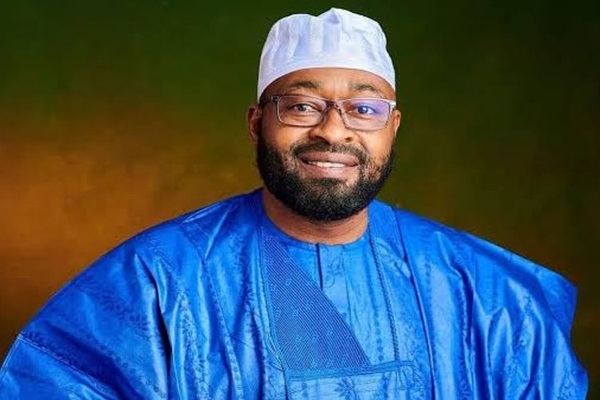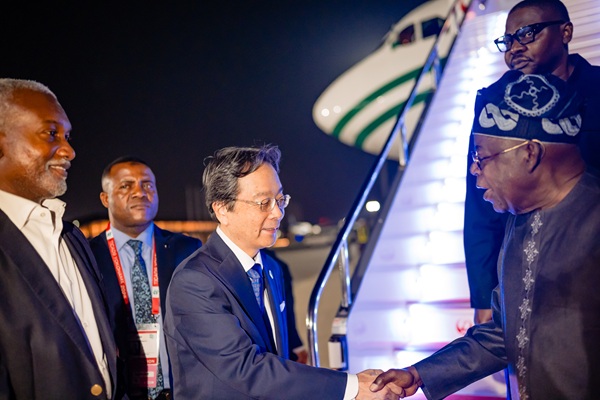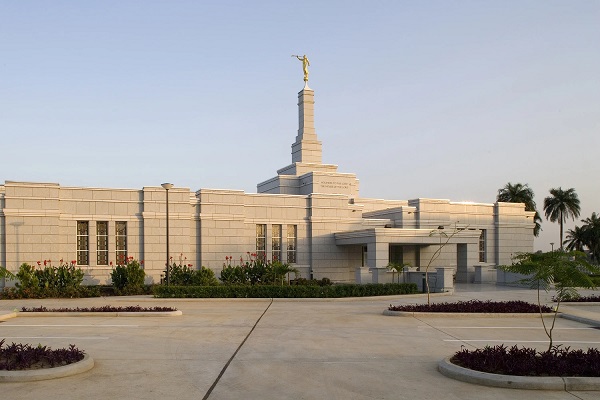
To boost food production in the country’s most populated but tiniest state by landmass, Niger State Governor Umar Bago yesterday donated 100,000 hectares of land to Lagos State for agricultural development.
The governor made the announcement at the FirstBank Nigeria-sponsored Agric & Export Expo 2025, held in Lagos.
The Federal Government has unveiled a renewed push for agricultural growth, with emphasis on boosting food production for both local consumption and exports.
Minister of Agriculture and Food Security, Abubakar Kyari, represented by his Special Adviser, Ibrahim Alkali, laid out a bold vision to transform Nigerian agriculture from a subsistence-based sector into a global export powerhouse.
“A tonne of raw produce brings income, but tonnes of processed produce build industries, create jobs, and earn foreign exchange,” Kyari said.
Using cocoa as an example, he noted that while Nigeria earns about $700 million annually from raw cocoa exports, processing could multiply that value three- to five-fold.
Obstacles and Opportunities
The minister acknowledged that agricultural transformation cannot be achieved without strong infrastructure.
He cited the exorbitant cost of domestic transport and the frequent rejection of Nigerian goods abroad due to poor certification.
“It often costs more to move a container from Ghana to Lagos than from Lagos to Europe,” he lamented.
He called for the adoption of a zero-reject policy, from farm to port, and the establishment of accredited laboratories and certification systems to meet global standards.
Citing global examples, Kyari pointed to Brazil, which earned $125 billion in agricultural exports in 2021, and Kenya, where innovative financial models have made agriculture the country’s third-largest foreign exchange earner.
Kyari also emphasised Nigeria’s youth advantage, noting that over 70 per cent of the population is under 30.
Between 2020 and 2022, African youth-led agri-tech startups attracted $640 million in investment, evidence that Nigerian youths are already building the future of agriculture.
Lagos pushes for diversification
Lagos State Governor, Babajide Sanwo-Olu, urged the private sector to partner with the government in urgently diversifying the economy away from oil.
He described the expo as a “visionary platform” for building an agriculture-driven future.
Citing volatility in global oil prices, foreign exchange instability, and rising import costs, he stressed:
“Nigeria must urgently broaden its economic base. The global marketplace is not waiting for us.”
Sanwo-Olu commended President Bola Tinubu’s policies, which he said have spurred steady growth in non-oil exports.
He cited data from the Nigerian Export Promotion Council (NEPC) showing that non-oil exports rose 19.59 per cent in the first half of 2025 to $3.225 billion, up from $2.696 billion in the same period of 2024.
He added that Lagos, as Nigeria’s commercial hub, has a “special responsibility” in the transformation agenda.
The governor highlighted major projects funded through a $1.35 billion partnership with Afreximbank and Access Bank, including the Lagos-Ibadan Expressway and the Lekki-Epe International Airport.
The state, he said, has also launched a N500 billion Offtake Guarantee Fund to support food security and agricultural productivity.
Niger’s role, by Bago
Governor Bago said Niger would serve as the production hub, while Lagos would be the consumer and logistics hub.
The proposed “Lagos Farm” project will be spread across several locations in Niger State to cultivate yams, beans, and livestock for Lagos markets.
He also pointed to huge export opportunities in the Middle East.
“The annual Hajj requires about five million sheep, each costing 500 riyals, representing a 2.5 billion riyal market in one transaction,” he revealed, adding that annual livestock demand in the region could reach 30 million.
Bago emphasised value addition across the livestock chain — from meat to hides and by-products — warning that “countries that export raw commodities remain perpetually broke.”
Bank restates commitment to agribusiness financing
Minister of Industry, Trade and Investment, Dr. Jumoke Oduwole, represented by NEPC CEO Mrs. Nonye Ayeni, said the government was intensifying efforts to help exporters meet certification standards, adding that the One State One Product (OSOP) programme remains central to diversifying away from oil.
FirstBank Managing Director, Olusegun Alebiosu, reaffirmed the bank’s commitment to financing agribusiness and non-oil exports.
“The expo reflects our shared vision for a stronger, more resilient economy anchored on food security, agribusiness, solid minerals, and non-oil exports,” he said.
He described agriculture as a once-overlooked sector now central to Nigeria’s development agenda, noting FirstBank’s long history of financing agribusiness across the value chain.
Alebiosu applauded the Federal Government’s efforts in boosting Nigeria’s agriculture agenda for food sovereignty.
The FirstBank 2025 Agric & Export Expo, themed “The Fundamentals of Building an Export-Driven Economy”, concluded with calls for actionable strategies to ensure Nigerian goods move from farms and factories onto global supermarket shelves.



